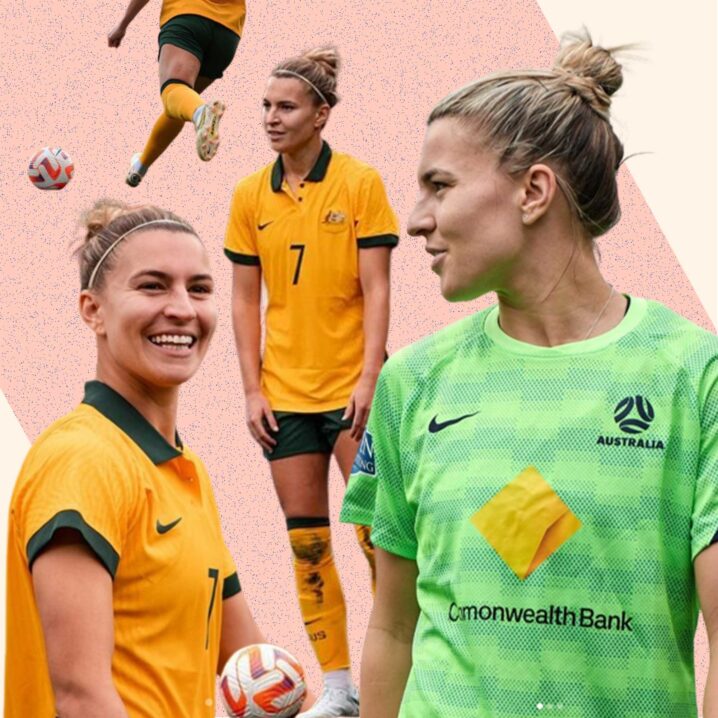
- POPSUGAR Australia
- Fitness
- Matildas’ Player Steph Catley on What We’re All Getting Wrong About Women’s Football
Matildas’ Player Steph Catley on What We’re All Getting Wrong About Women’s Football

Matildas’ player and Nike athlete Steph Catley says there’s one thing we’re getting wrong about women’s football. The Australian professional soccer player has played on both the Australian national team and the UK’s Arsenal team in a career spanning over 10 years. When it comes to an opinion about why we’re still not taking women’s football seriously, she’s worth hearing out.
“It’s about breaking down the stigma that it’s not as good, and it’s not as fast, and the girls aren’t as strong,” says Catley. “I think you’ve got to break that barrier and just see it for what it is.”
According to Catley, men’s and women’s football are different entities. They’re different skills. And there are things about women’s football that are incredible — not to mention the athletes and others involved are amazing, she says.
“Their stories are incredible. They’ve come from hardships. They’re mothers. There are all these incredible things about female athletes that are powerful and different from the men’s game, and I think that’s the most important thing when you’re comparing the two.”
The Australian men’s national team, the Socceroos, was established in 1922. Comparatively, the Australian women’s team only became official in 1978. Catley believes the Australian media can play a role in helping to achieve gender equality in the football industry by making sure the broadcasting of women’s football is equal to the men’s.
In other words, ensuring that equal effort is put into promoting women’s and men’s games. If the promotion is equal, Catley says, then more people will know about the women’s games.
“Then more ticket sales, and more interest in general,” she says. “I think that’s probably the main thing [the Australian media] can do — just the promotion. Because in the past, there’s not been female [athletes] on TV. When I was growing up, I never had females to look up to because I couldn’t see them on TV and didn’t have access to them.”
To change this for the next generation, Catley suggests parents ensure their little girls have female idols to look up to. It’s also important to talk about women in sports, and powerful women in general. “That’s a really good way to get that ball rolling,” she says.
Today, Catley isn’t short on female athlete inspiration. She counts the bond she shares with the rest of the Matildas players as one of the most rewarding aspects of the job. She says the friendships she’s built with the other players have made them like family to her.
“You’re so invested in the same thing that those connections are so powerful, and I’ve made friends I’ll have for life,” she says. “I think that’s the coolest part. You’re working towards something amazing, but you’re making life-long friendships while you’re doing it.”
Ahead of each game, Catley says the team loves listening to pump-up music together in the change room. Many of them eat similar meals beforehand, too — usually spaghetti Bolognese or some other pasta. However, she notes that because everyone approaches a game different, that’s where their shared pre-game rituals end.
As for what advice Catley would give young girls wanting to pursue a career in football, she says she’d tell them to believe in themselves and to back themselves.
“Females in sports, in particular, are starting from a place of a disadvantage,” she says. “You can walk into a room and sometimes you’re not appreciated as much as you should be. Just back yourself. If you love what you’re doing, then believe in it and go after it.”


